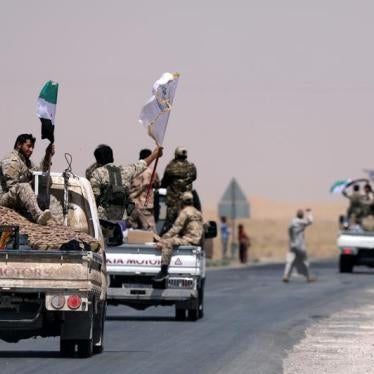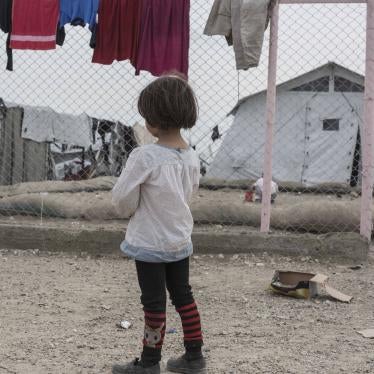After four years of the Islamic State’s control, the new rulers of the devastated city of Raqqa have a long and overwhelming to-do list. One of the urgent tasks is to reestablish a functioning judicial system that can provide justice for victims, prosecute dangerous IS suspects, and tackle the numerous property and personal disputes that have arisen during the conflict.
Compared with the immediate concerns of demining and reestablishing water and electricity, justice may appear less urgent, but that would be a mistake. Raqqa’s future stability hinges on the ability of authorities to provide justice so victims do not seek revenge and so that those who are perceived to have worked with or assisted the Islamic State do not get collectively punished. It is a daunting challenge with no simple answers. Right now, the task is left to newly established local courts that have well-intentioned judges and lawyers but few resources, limited legitimacy, and serious due process issues.
The Syrian Democratic Forces (SDF), the US-backed Kurdish-Arab coalition that retook Raqqa, announced that they will hand over day-to-day control of the city to the Raqqa Civil Council. The council’s current plan is to join the decentralized autonomous system established by the Kurds in three northern Syrian cantons, most commonly referred to as Rojava. Rojava authorities have encouraged what they call a “bottom-up” approach to justice, with locally established people’s courts handling civil and criminal cases. Following the practice of other towns retaken from the Islamic State, the Raqqa Civil Council announced on October 22 that it was setting up a new people’s court for Raqqa city and the surrounding countryside. It will tackle criminal as well as civil cases, notably property disputes that arose during the Islamic State’s presence.
While there has been no comprehensive assessment of these courts’ operations, the few studies done suggest that they suffer from lack of professionalism, including a paucity of trained prosecutors and judges. Some critics have also complained that the locally dominant Democratic Union Party (PYD) has politicized the courts.
Terrorism cases are not handled by the people’s courts but by the People’s Protection Court, which has a presence in Qamishli and Afrin. In July, before Raqqa was retaken, this court had handled more than 700 terrorism cases in Rojava, applying a counterterrorism law adopted by the local legislative council of Rojava in 2014. There are major concerns about due process, with suspects denied the right to a lawyer and to appeal their sentences. Detainees complained about lengthy pre-trial detention and not being able to challenge the evidence against them. Yet, in a positive step, the Rojava authorities have abolished capital punishment, including for terrorism cases.
Meanwhile, there is no strategy to deal with the many foreign nationals who joined the Islamic State or the families of the organization’s Syrian members, many of whom are living in camps for internally displaced people. While many of the women and children are not officially under arrest, they are de facto held in the camps and have no idea about their future.
It is easy to criticize these local courts. They operate with very little material and human resources and do not meet basic due process guarantees. Yet, for now, there is no other alternative, as the Syrian government’s courts are rife with torture and due process issues. Instead, more international effort could help improve these courts to ensure the rights of detainees and address the question of trials of foreign nationals.







